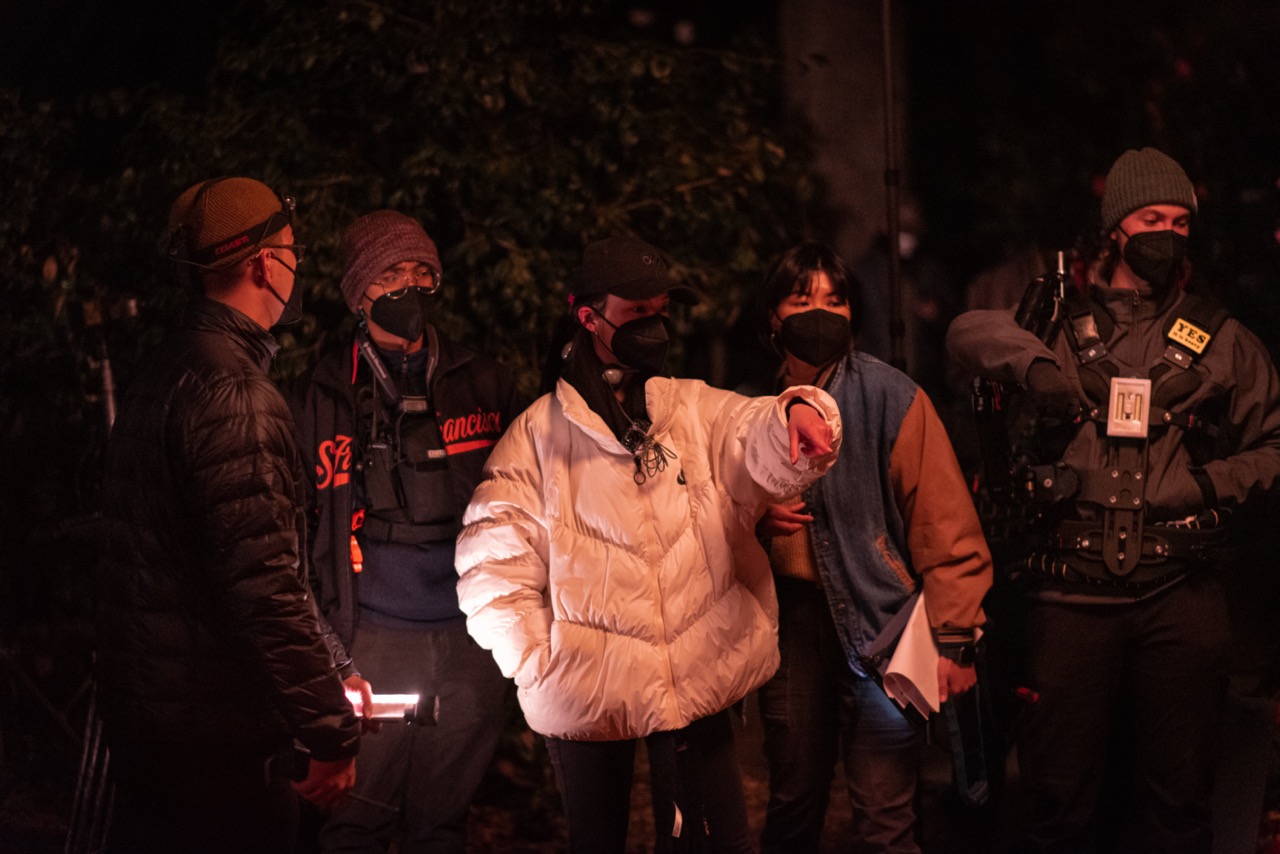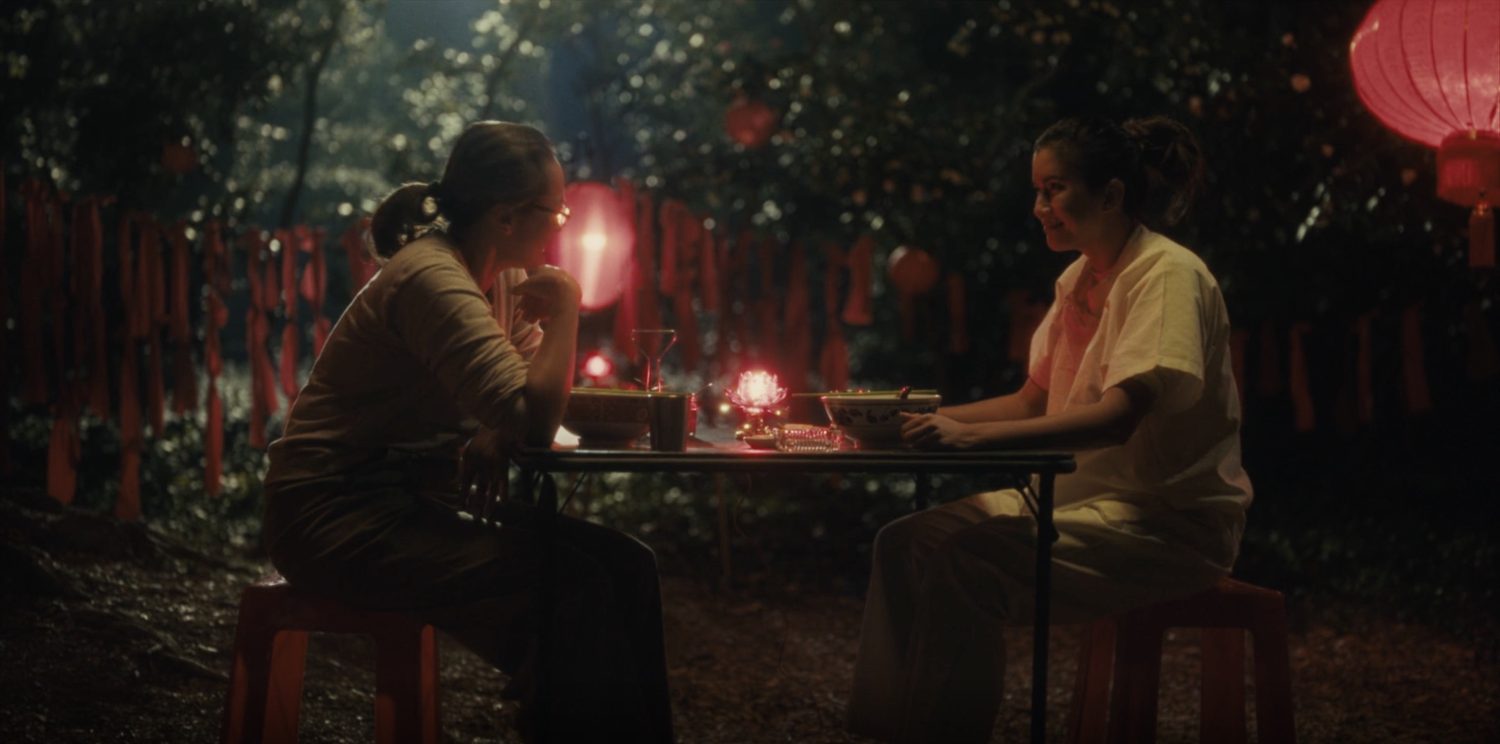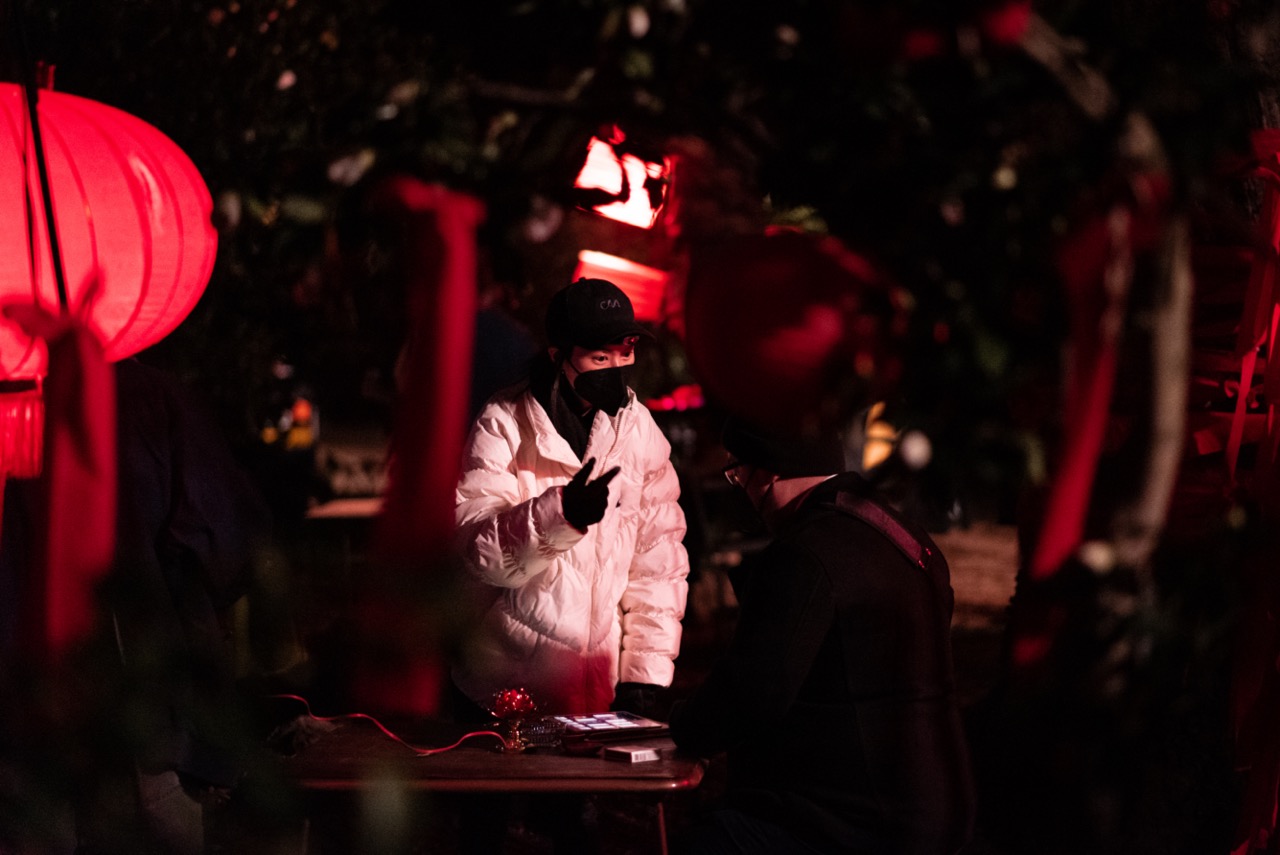The afterlife has always haunted the human experience. While we as a society don’t often speak about death, it lingers in the air like the incense sticks on one’s altar. Our conversations when it comes to loved ones passing away frequently end up as merely “would’ve could’ve should’ve” but Emily Teera’s short film, “Soul Food,” premiering tomorrow at the Los Angeles Asian Pacific Film Festival (LAAPFF), subverts the delicate issue of what comes after death with a distinctly Thai twist. The short film follows a young Thai woman named Fah, who finds herself in the space between life and death, and reunites with her dead mother June, as they struggle to mend past wrongdoings and overcome regrets.

Teera sat with Character Media ahead of “Soul Food”’s premiere to speak about the inspirations for her first short film, filial piety and what it means to her to be the only Thai director featured in this year’s LAAPFF lineup.
How did you come about creating a film that focuses on mother-daughter relationships?
Emily Teera: This short film used to be a short story, and [it] was completely different; it was an exploration of my earliest childhood memory, which was me as a two-year-old at my grandma’s funeral, learning about life and death. It was kind of this magical realism, “Spirited Away”-esque world, that I wrote in the pandemic. I sent it to my friend/producer on this, Halley Albert, and she was like, “You need to make this.” When I got more into the process, I realized I’m not that little girl. I’m not discovering the idea of death in life anymore. So, I aged the girl up to a woman and aged the grandma down to a mom. I was like, “What if this is an exploration of my relationship with my mom [who’s still alive]?” Theoretically, if you lose someone you love deeply, but who has also hurt you, how would you have that conversation if you get to speak with them again?”

Both versions of the script delve deep into the tough subject of grief; what made you want to make a central theme to the film?
ET: It was because my family was going through grief at the time. We lost my aunt during the pandemic. I was on the third or fourth draft of the script, [when] my aunt passed away. She had breast cancer and for six years, we knew that was going to happen, but when it did happen, it felt really sudden. I watched my baby cousins who were like 17, 14 and 11 at that time go through that and saw that they never got to say everything they wanted to say to [their mother] even though they knew [their] time was limited. I asked myself, “If I lost my mom right now, would I have said everything I wanted to say to her?” By analyzing my own situation with my family, even though we were physically together in numbers, grief makes you incredibly lonely, and I wanted my audiences to feel that if they’re going through some sort of loss, they’re not alone. They can feel seen in this film.
What does “Soul Food” have to say about the traditions of filial piety and one’s relationship with their parents?
ET: In Thai, there’s a word for it,กตัญญู, “Are you a child who is loyal to your parents?” You’re taught growing up in Thailand that you owe your every essence to your parents. I still believe that is true; I’m lucky enough that even though my mom and I have a hard relationship, I still love her deeply. People who come from abusive households might feel differently. But the idea of you owing respect, loyalty [and] your essence to your elders is so Asian in general. And in Thai [culture], specifically, there’s such a big cultural hierarchy in terms of age, which is a double-edged sword. The part which starts getting tricky is when you use that as a social institution to hold down young people and progress. I think we’re a victim of that in Thailand for sure. I’ve barely scratched the surface in the short film; there’s a reason why the argument between Fah and June couldn’t have happened when they were alive — the stakes of it being their last conversation shatters [Thai] social hierarchy to the point where Fah is being borderline disrespectful to her mom. They’re able to break that social pressure to come to an understanding of vulnerability.
What were some of the main inspirations for the short film?
ET: My three comparables were “Spirited Away” for world-building, “Lady Bird” for the mother/daughter dynamic and “Uncle Boonmee Who Can Recall His Past Lives” for the culturally specific touch to magical realism. “Uncle Boonmee” is a tonal reference in a lot of ways because of the way he explored magical realism through such a Thai lens — it also visually influenced the way I shot.

How does it feel being the only Thai film and director at LAAPFF?
ET: It’s a big pressure, I have spoken to a lot of my friends who are also like other Asian diasporas right trying to make it in Hollywood, and it’s an honor, but because you’re the first, you’re shouldering a lot of the responsibility to represent your people [and] your culture authentically. For me, premiering at the LA Asian Pacific Film Festival as the only Thai short film to make it in, it’s scary but also exciting because how many times can you say that we’ve seen our story on the big screen in a culturally significant event? I feel camaraderie from the Asian Pacific Islander community in Hollywood, I feel camaraderie in the Southeast Asian folks who have supported me specifically.









